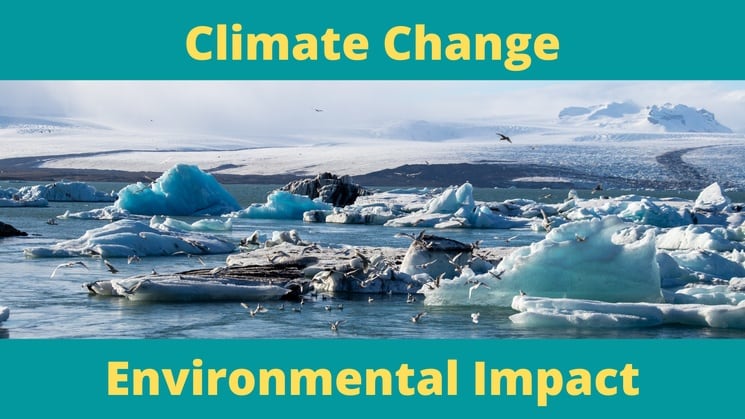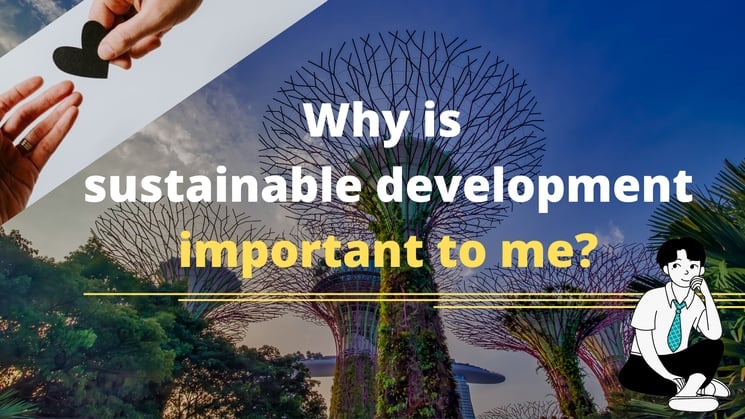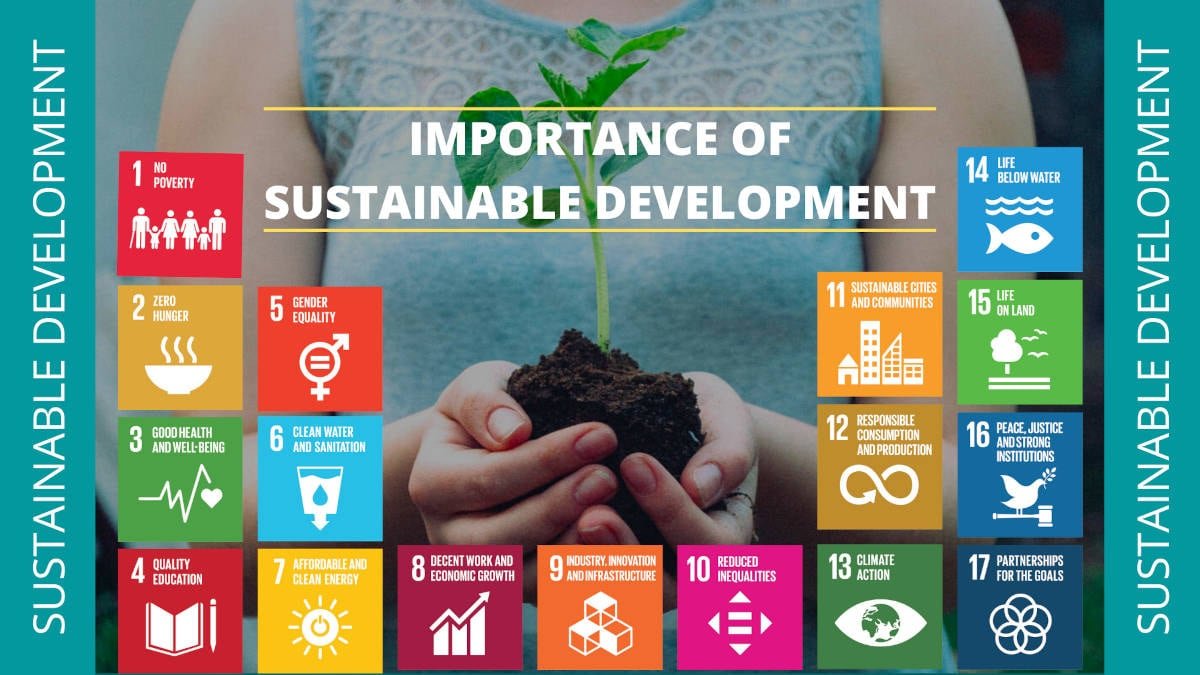Sustainable development is important because it encourages us to preserve our natural resources, respect the environment, and conserve biodiversity. Sustainable development allows us to live in harmony with the planet.
Key Takeaways
- Sustainable development balances environmental, social, and economic needs.
- Aims for long-term well-being without compromising future generations’ needs.
- Encourages responsible use of resources and promotes equality and education.
Why is sustainable development Important?

Sustainable development is important because we have responsibilities toward future generations. They should also be able to:
- Have access to enough natural resources to fulfill their fundamental needs
- Conserve the environment, biodiversity, healthy ecosystems, and clean oceans
- Live in a peaceful, fair, and thriving society
- Enjoy a growing economy and have access to decent employment
- We have no reason to use more natural resources than what we strictly need
Sustainable Development Goals
The 17 UN sustainable development goals are a pathway to achieve all of this within 2030. Here are the 17 UN sustainable development goals (SDGs):
- No poverty
- Zero hunger
- Good health and wellbeing
- Quality education
- Gender equality
- Clean water and sanitation
- Affordable and clean energy
- Decent work and economic growth
- Industry, innovation and infrastructure
- Reduced inequalities
- Sustainable cities and communities
- Responsible consumption and production
- Climate action
- Life below water
- Life on land
- Peace, justice and strong institutions
- Partnerships for the goals
In recent history, humanity has made incredible progress in improving the quality of life and well-being of people all around the world.
We have reduced poverty rates, improved medicine, and healthcare, provided clean water to large portions of the world, and given countless people access to education, among many other achievements.
However, there is still a lot of progress to be made, and every person deserves to have necessities such as these, both in the present and in the future.
We have a responsibility to ensure that future generations will also be able to fulfill these needs, that they can live on a planet with rich environments and healthy ecosystems, and that their society is peaceful, fair, and thriving.
So, why is the issue of sustainability so important for human development?
Let’s take an in-depth look at some of the issues related to sustainability that we are facing, what actions need to be taken in order to tackle them, and the results that will be achieved by implementing sustainable development.
Climate Change and Environmental Impact

To combat climate change, we must reduce greenhouse gas emissions, primarily carbon dioxide, by shifting from fossil fuels to renewable energy sources, enhancing energy efficiency, and increasing afforestation.
Addressing environmental destruction, like Amazon deforestation, is crucial due to its impact on global ecosystems and biodiversity.
Addressing poverty is pivotal for environmental conservation, as it reduces resource overexploitation, fostering a cycle of sustainability. Developing nations have significant renewable energy potential, benefiting their environments and economies.
Education on sustainability and adaptive strategies for climate change are essential for global awareness and mitigation.

Equality, Health, and Quality of Life
Social sustainability aims to enhance global happiness, well-being, and rights, addressing poverty and hunger as crucial to preventing environmental degradation.
Despite significant poverty reduction from 1990 to 2018, disparities persist, underscoring the need for focused development in stagnant economies to improve living conditions.
Additionally, providing universal education is vital for sustainable development, empowering individuals with the skills to tackle global challenges and enabling societal advancement toward sustainability.

Why is Sustainable Development important to me?

Our sustainable development goals are not tasks that can be completed overnight or be left to just a few people.
Sustainability is something that affects the lives of every person on the planet, and sustainable development is a mission for all of humanity. Every day, all around the world, there are countless people who are working hard to create a healthier, fairer, and more sustainable world for us and all future generations to live in.
It is not only that sustainable development is important for you, it is you who is important for sustainable development.
There are many ways that you can help to move us forward, and every little thing that you do brings us a little closer to being a sustainable society, whether it’s raising awareness, changing your habits to be more eco-friendly, or donating to charities that can put the money to good use. You could have a great impact on making the world a better place.
The Importance of sustainable development for the Economy

Economic growth, while beneficial, often harms the environment, necessitating a shift towards sustainable development, balancing human progress with environmental conservation.
Adopting sustainable production and consumption practices, such as using renewable materials, reducing waste, and designing durable products, is essential to mitigate environmental impact and ensure resource availability for future generations.
Why is Sustainability Important for Business success?
Business sustainability is crucial, driven by public demand and regulatory pressures, necessitating shifts in operations to remain competitive and profitable.
Companies must embrace sustainable practices, leveraging technology and green innovations to enhance efficiency, reduce waste, and appeal to environmentally conscious consumers.
Such adaptations not only ensure compliance with evolving regulations but also offer a competitive edge, attracting customers who prioritize sustainability, thereby securing long-term business success and contributing to broader environmental goals.
Gender Equality and Sustainable Development
Sustainable development emphasizes eliminating inequalities, with gender equality being a crucial component. In many regions, women face discrimination and limited access to education and work, hindering societal progress.
Gender equality not only alleviates suffering but also boosts development and economic growth, as women contribute valuable ideas and skills. Progress is evident as more women gain access to education and leadership roles, though challenges remain.
Ensuring women’s rights and opportunities is fundamental to creating a more equitable and prosperous society.
choose eco friendly products
Choosing sustainable products supports businesses committed to eco-friendly practices and diverts funds from those that aren’t, promoting a shift toward a greener economy. This consumer choice encourages wider adoption of sustainable practices across industries.
Eco-friendly products often offer better functionality and cost-effectiveness, like energy-efficient light bulbs that use less power and last longer, reducing waste and personal environmental impact.
How Achieve Sustainable Development

The interconnected principles of sustainability emphasize the need for holistic approaches in creating a sustainable future, highlighting the critical role of education in fostering awareness and skills for sustainable development.
As global awareness grows, individual actions, guided by frameworks like the 6 Rs of sustainability, become crucial in advancing towards collective sustainability goals, offering hope for future progress.

